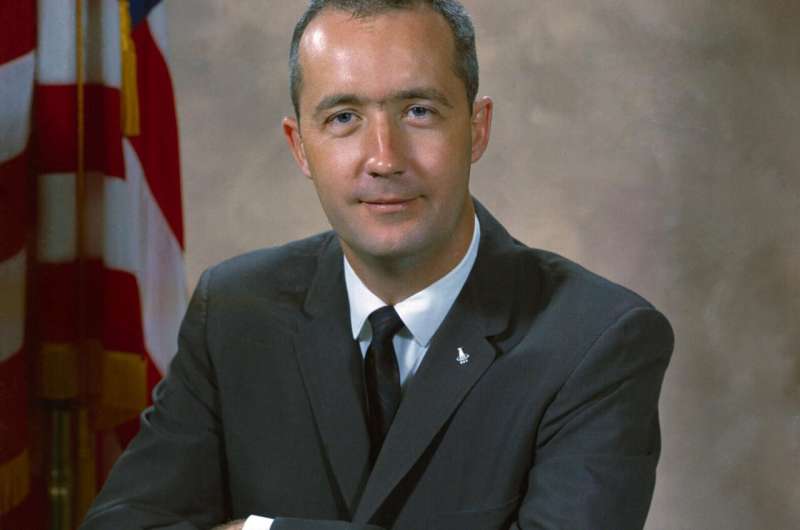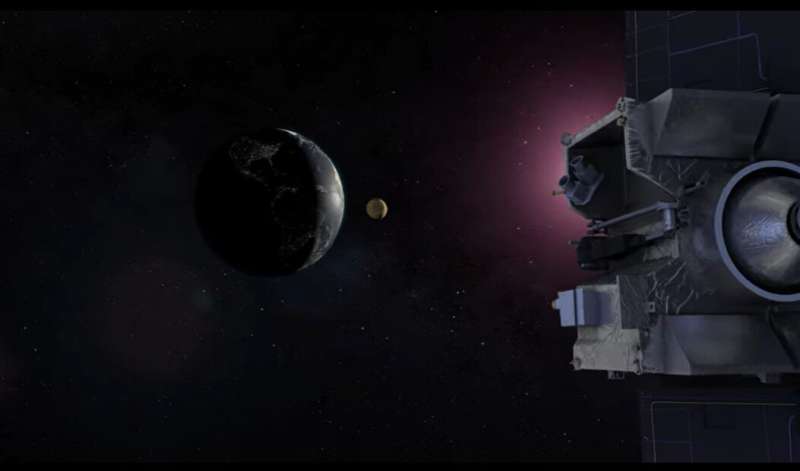
Copernical Team
NASA awards contracts to assess near-space communications capabilities
 NASA has selected two companies - Kongsberg Satellite Services (KSAT) USA of Denver and SpaceLink Corporation of McLean, Virginia - to develop capability studies to explore and demonstrate communications and navigation services in support of Artemis missions to the Moon.
The awards, under the Next Space Technologies for Exploration Partnerships-2 (NextSTEP-2) Broad Agency Announcement (BAA
NASA has selected two companies - Kongsberg Satellite Services (KSAT) USA of Denver and SpaceLink Corporation of McLean, Virginia - to develop capability studies to explore and demonstrate communications and navigation services in support of Artemis missions to the Moon.
The awards, under the Next Space Technologies for Exploration Partnerships-2 (NextSTEP-2) Broad Agency Announcement (BAA Eutelsat strategy update on the proposed combination with OneWeb
 Eutelsat Communications (Euronext Paris: ETL) has hosted a Strategic Update on the proposed combination with OneWeb, announced in July 2022.
Eutelsat and key OneWeb shareholders signed a Memorandum of Understanding in July 2022, with a view to combining Eutelsat and OneWeb in an all-share transaction, whereby Eutelsat and OneWeb shareholders will each hold 50% of the Eutelsat shares2. The
Eutelsat Communications (Euronext Paris: ETL) has hosted a Strategic Update on the proposed combination with OneWeb, announced in July 2022.
Eutelsat and key OneWeb shareholders signed a Memorandum of Understanding in July 2022, with a view to combining Eutelsat and OneWeb in an all-share transaction, whereby Eutelsat and OneWeb shareholders will each hold 50% of the Eutelsat shares2. The DLR's new optical ground station inaugurated
 Satellites are increasingly becoming network nodes of the internet. Terrestrial nodes are integrated via fibre optic networks, and satellites can only keep up with current developments on the ground if they are also optically networked. European Commission programmes such as the 'Secure Connectivity Initiative' depend on this technology, as do many commercial networks such as Starlink or Oneweb,
Satellites are increasingly becoming network nodes of the internet. Terrestrial nodes are integrated via fibre optic networks, and satellites can only keep up with current developments on the ground if they are also optically networked. European Commission programmes such as the 'Secure Connectivity Initiative' depend on this technology, as do many commercial networks such as Starlink or Oneweb, Phase Four unveils game changing engine for LEO constellations
 Phase Four, the creator of the radio-frequency thruster for satellite propulsion, reports that it will expand its Maxwell turn-key plasma propulsion line and offer satellite manufacturers an industry-first high performance engine using an inexpensive, domestically sourced iodine-based propellant. Max-V leverages the Maxwell Block 2 engine's innovative architecture and builds on the radio-frequen
Phase Four, the creator of the radio-frequency thruster for satellite propulsion, reports that it will expand its Maxwell turn-key plasma propulsion line and offer satellite manufacturers an industry-first high performance engine using an inexpensive, domestically sourced iodine-based propellant. Max-V leverages the Maxwell Block 2 engine's innovative architecture and builds on the radio-frequen Astronaut James McDivitt, Apollo 9 commander, dies at 93

James A. McDivitt, who commanded the Apollo 9 mission testing the first complete set of equipment to go to the moon, has died. He was 93.
McDivitt was also the commander of 1965's Gemini 4 mission, where his best friend and colleague Ed White made the first U.S.
First NASA asteroid sample return mission on track for fall '23 delivery

NASA's first asteroid sample return spacecraft, OSIRIS-REx, fired its thrusters for 30 seconds on Sept. 21 and nudged its trajectory toward Earth. The resulting course correction keeps the vehicle on track to deliver a sample of asteroid Bennu to Earth on Sept. 24, 2023, completing a seven-year mission.
The delivery itself, however, is not a simple parcel drop on Earth's front doorstep: NASA's OSIRIS-REx—formally the Origins Spectral Interpretation Resource Identification Security—Regolith Explorer—must approach Earth at a precise speed and direction to deliver its sample return capsule into Earth's atmosphere. "If the capsule is angled too high, it will skip off the atmosphere," said Mike Moreau, OSIRIS-REx deputy project manager at NASA's Goddard Space Flight Center in Greenbelt, Maryland. "Angled too low, it will burn up in Earth's atmosphere."
To ensure a safe delivery, "Over the next year, we will gradually adjust the OSIRIS-REx trajectory to target the spacecraft closer to Earth," said Daniel Wibben, trajectory-and-maneuver design lead with KinetX Inc.
Researching the effects of simulated space habitats on crews under controlled and isolated conditions

Current international human space exploration roadmaps envisage month-long crew stays on the moon within the next few decades, with crewed missions to Mars the long term goal. The psychological effects of human spaceflight, especially in the sense of isolation and confinement, need to be explored ahead of deep space crewed missions.
To allow astronauts not only to survive but to thrive in alien environments, practice is needed. Practice involves operations on the ISS, but the ISS cannot simulate all aspects of a Lunar or Martian mission, such as the surface operations or long periods without sunlight. Therefore, research is being carried out under controlled and isolated conditions within simulated space habitats, to gain insights into the effects of such conditions on the research subjects and their impacts on crews' well-being and success.
Similarly, an analog environment cannot fully replicate that of the moon or Mars, but a variety of analog environments that simulate different aspects of the off-world environment can be used in conjunction to prepare for future missions.
British institutions join search for answers on early universe
 Six British academic institutions will join a U.S.-led search for answers on the early universe.
The project brings together 85 institutions from 13 countries to analyze data from the Simons Observatory, a series of telescopes 3.2 miles above Chile's Atacama desert. The observatory has three instruments that are designed to measure cosmic microwave background, the heat and radiation tha
Six British academic institutions will join a U.S.-led search for answers on the early universe.
The project brings together 85 institutions from 13 countries to analyze data from the Simons Observatory, a series of telescopes 3.2 miles above Chile's Atacama desert. The observatory has three instruments that are designed to measure cosmic microwave background, the heat and radiation tha Ariane 6 stands tall on its launch pad

The Ariane 6 launch pad at Europe’s Spaceport in French Guiana now hosts for the first time a fully assembled example of ESA’s new heavy-lift rocket, following the addition of an upper composite to the core stage and four boosters already in place. The upper composite – consisting of two half-fairings and a payload mock-up with the structural adapter needed to join it to the core stage – made the 10 km trip from the encapsulation building to launch pad on 12 October.
Russia launches new Angolan satellite into orbit
 Russia launched a new Angolan communications satellite on Wednesday from the Baikonur cosmodrome in Kazakhstan, the Roscosmos agency said, after Luanda's first satellite was lost in space.
A Proton-M rocket blasted off at 1500 GMT and Angosat-2 was "being put into orbit", the agency said.
Angosat-1 was also deployed by a Russian rocket in December 2017, but Moscow announced it had lost c
Russia launched a new Angolan communications satellite on Wednesday from the Baikonur cosmodrome in Kazakhstan, the Roscosmos agency said, after Luanda's first satellite was lost in space.
A Proton-M rocket blasted off at 1500 GMT and Angosat-2 was "being put into orbit", the agency said.
Angosat-1 was also deployed by a Russian rocket in December 2017, but Moscow announced it had lost c 



































